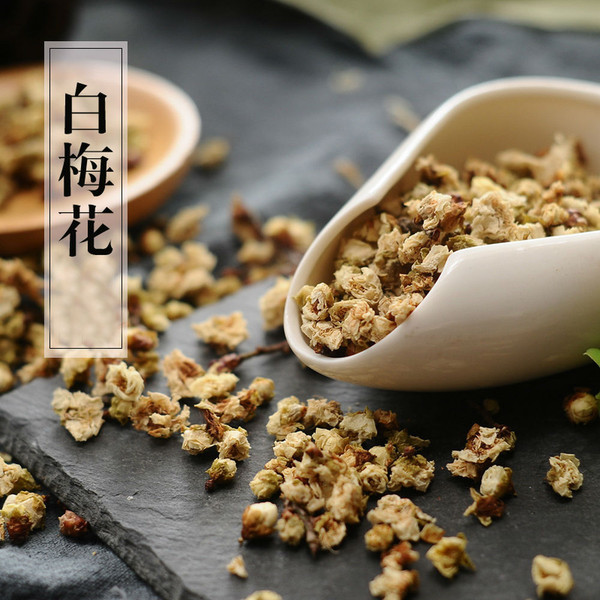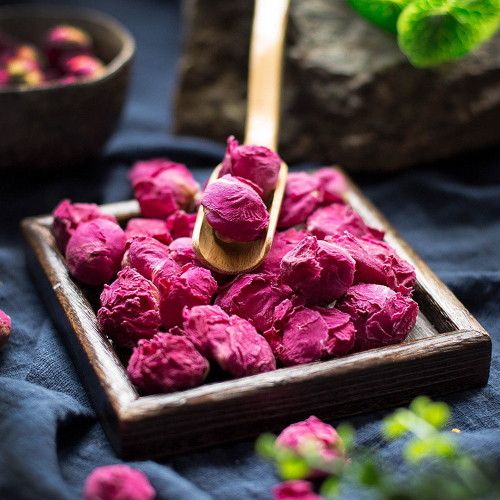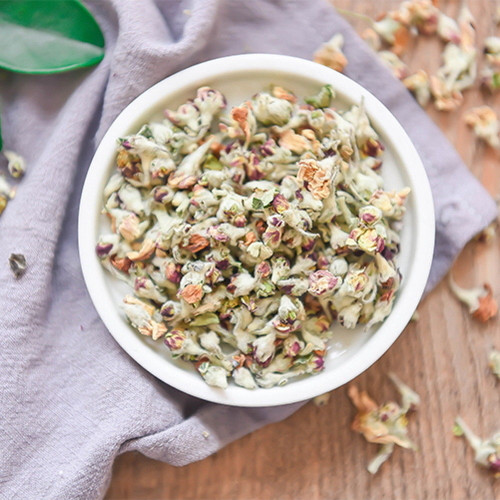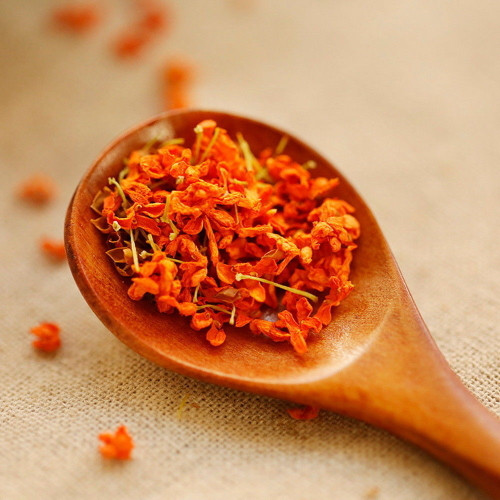Product Overview
Type: Herbal
Packaging: Bag
Origin: China
Description: The Chinese Plum Flower is the blossom of the Prunus Mume, which is normally referred to as the Chinese Plum or the Japanese Apricot. The tree comes from South China but was later exported to Korea, Vietnam and Japan. The plum tree usually flowers in late winter, when there is still snow on the ground, just before the leaves are due to appear. The flowers each have 5 petals and the blossoms usually come in colours of white, pink and deep red.
Chinese Plum Flowers have a special significance in Asia, where they are highly prized for their delicacy and beauty. Plum flowers represent a natural remedy that has not gain yet its popularity all over the world, but it is widely used in Chinese traditional medicine. The Chinese people have been using these flowers for centuries, in order to treat numerous health issues, especially digestive problems, ulcers, and parasites. Also, they have a particular role in blood purification and detoxification.
Prunus mume extract is a potential candidate for developing an oral antimicrobial agent to control or prevent dental diseases associated with several oral pathogenic bacteria. Prunus mume extract may inhibit Helicobacter pylori, associated with gastritis and gastric ulcers. P. mume extract administered during endurance exercise training may enhance the oxidative capacity of exercising skeletal muscle, and may induce the muscle to prefer fatty acids for its fuel use rather than amino acids or carbohydrates, thus assisting endurance.
The high amount of antioxidants from plum flowers and fruits is effective in preventing the oxidation of LDL cholesterol, and atherosclerosis. These flowers are also known for protecting heart health and fighting obesity. The antioxidants contained by these flowers play a significant role in strengthening the immune system; this is why Chinese people often use the said flowers in the form of tea or extract during convalescence. When it comes to digestive issues, we definitely have a winner. Plum flowers can cure gastric spasms, cramps, diarrhea, constipation, indigestion, bloating, parasites, and ulcers.
This calming properties of this tea can be helpful to alleviate anxious, nervous, and stressful mood. In TCM, is also known to boost immune system, detox body organs, and promote digestive health. The anti-aging properties help guard against skin cell damage and reveal health skin from within.
Brewing Guide: Rinse tea cup and teapot with hot water. Fill the teapot 2 grams (1-2 teaspoons) tea leaves for every 225ml of water. Infuse in hot water at 90°c (194°F) to 95°c (203°F) for 2 to 3 minutes for the first and second brewing. Gradually increase steeping time and temperature for subsequent brewing.
Plum Flower Natural Remedy Recipe:
Ingredients: 1 spoon of plum flower, 1 cup of milk, 1 teaspoon of raw honey
Preparation:Put a cup of milk into a small pot and bring it to a boil. The next step is to add the plum flowers, stir a little and cover the pot. Let it steep for about 10 minutes. Then, filter the beverage, throw away the plum flowers, and let the drink cool down a little. Once the drink has reached a lower temperature – it has to be only warm, not hot – add one teaspoon of raw honey and stir well.
For optimal results, drink 2 cups of this beverage per day – one in the morning, before breakfast, and the other one before going to bed, for at least ten days. You will soon notice the benefits of this remedy on your overall health, beginning with the digestive tract. If you suffer from severe or chronic constipation, you can solve these issues with the help of an excellent homemade remedy with plum fruits. Since they're very rich in dietary fiber, plums can boost digestion and relieve constipation. Take 6-8 plum fruits, wash them thoroughly, and remove their kernels. Put them in a blender, add a little water and you'll obtain a delicious and efficient remedy for constipation.












